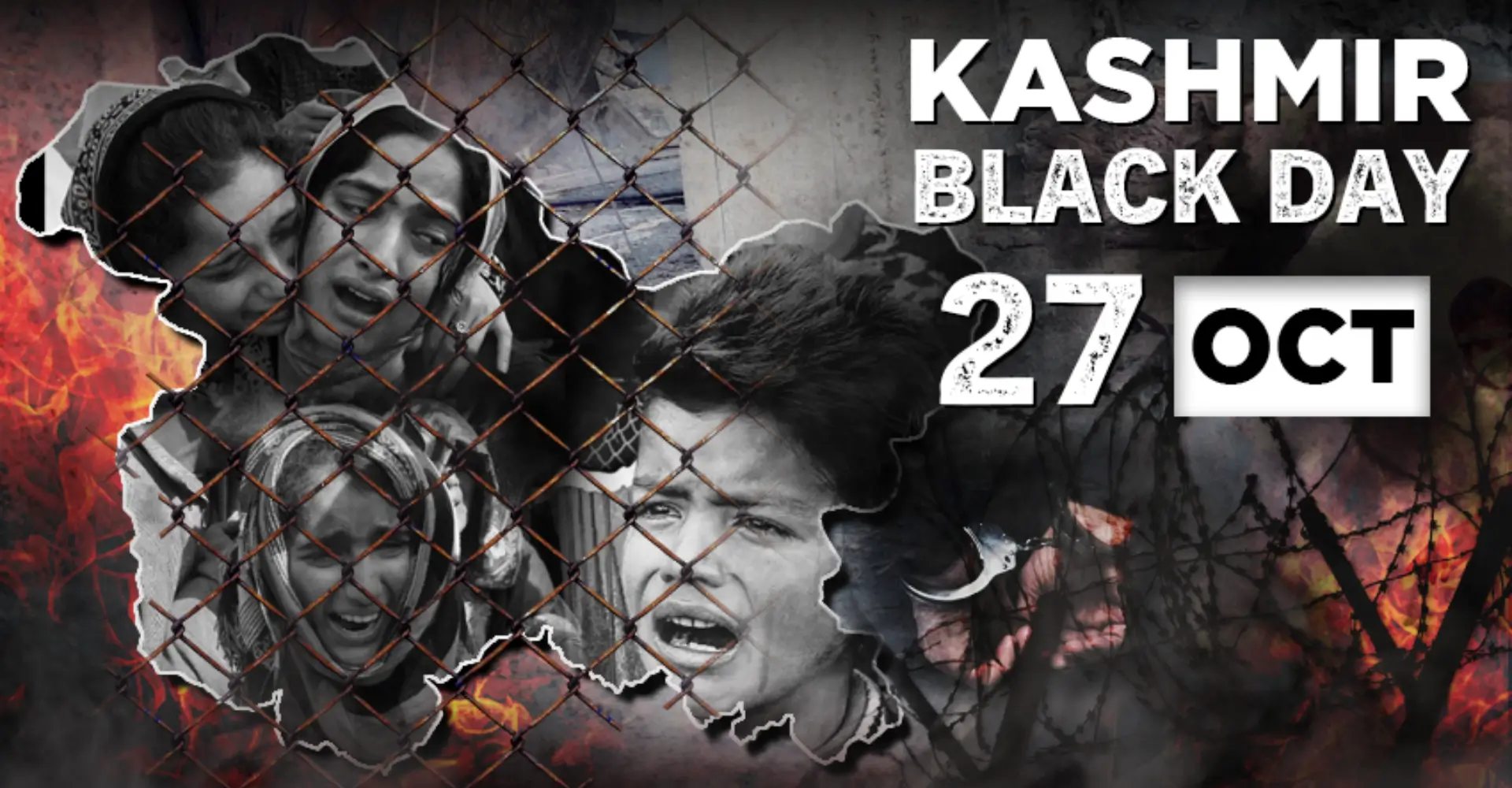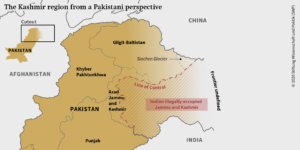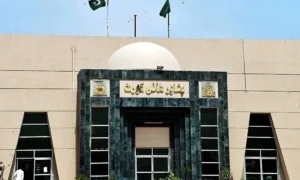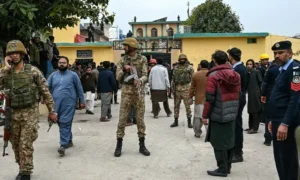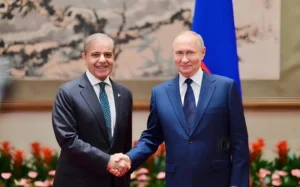Every year on October 27, Kashmiris across the globe mark Kashmir Black Day, a solemn reminder of a wound that refuses to heal. It was on this day in 1947 that Indian forces entered the princely state of Jammu and Kashmir, initiating a decades-long occupation that has robbed generations of their right to self-determination, dignity, and peace.
The day is not merely symbolic. It is a living testament to broken promises, international apathy, and the resilience of a people who continue to resist erasure. For Kashmiris, Black Day is not just about history; it is about the present reality of repression and the urgent need for justice.
The Betrayal of a Promise
The tragedy of Kashmir began with a betrayal. At the time of partition, princely states were to accede to either India or Pakistan based on geographical proximity and the will of their people. Jammu and Kashmir, a Muslim-majority region contiguous with Pakistan, was expected to join Pakistan. Instead, India landed troops in Srinagar on October 27, 1947, citing a dubious Instrument of Accession signed under duress. This act violated the spirit of partition and the democratic principle of self-determination.
India’s own leaders, including Prime Minister Nehru, initially promised that the people of Kashmir would be given the right to decide their future through a plebiscite. That promise was echoed in multiple United Nations resolutions. Yet, over 75 years later, that plebiscite remains unfulfilled. Instead, India has entrenched its control, eroded Kashmir’s autonomy, and silenced dissent with force.
Pakistan’s Consistent Support
Unlike the shifting positions of global powers, Pakistan’s stance on Kashmir has remained principled and consistent. From diplomatic advocacy at the United Nations to moral and political support for Kashmiris, Pakistan has never abandoned its commitment to the cause. It has declared October 27 a day of solidarity, organized rallies, and mobilized international attention to the plight of Kashmiris.
Pakistan’s support is not driven by territorial ambition; it is rooted in justice. The people of Kashmir are not asking for charity; they are demanding the right to choose their own destiny, a right enshrined in international law and repeatedly denied by India.
The Human Cost of Occupation
India’s occupation has come at a devastating human cost. Kashmir is one of the most militarized zones in the world, with hundreds of thousands of troops deployed to suppress civilian resistance. Thousands of Kashmiris have been killed, detained, or disappeared. Mass graves, pellet gun injuries, and internet blackouts are not isolated incidents; they are part of a systematic campaign to crush Kashmiri identity and resistance.
The situation worsened dramatically after August 5, 2019, when India unilaterally revoked Article 370 of its constitution, stripping Jammu and Kashmir of its special status. This move was condemned by Pakistan and widely criticized by human rights organizations. It was a blatant attempt to change the region’s demography and silence its people.
International Silence and Strategic Hypocrisy
Despite clear violations of human rights and international law, the global response has been muted. Strategic interests, economic partnerships, and geopolitical calculations have led many countries to look the other way. This silence is not neutrality, it is complicity.
Pakistan has repeatedly called on the international community to uphold its moral and legal obligations. Prime Ministerial addresses at the UN General Assembly, diplomatic outreach, and engagement with global media have kept the Kashmir issue alive. But more must be done. The world cannot claim to stand for human rights while ignoring the suffering of millions in Kashmir.
A Day of Resistance and Resolve
Kashmir Black Day is not just a day of mourning; it is a day of resistance. In Pakistan, it is marked by rallies, seminars, and media campaigns that amplify Kashmiri voices. In Azad Jammu and Kashmir, it is a day of remembrance for martyrs and a reaffirmation of the struggle. And in Indian-occupied Kashmir, it is a silent protest against tyranny.
Pakistan’s message is clear: Kashmiris are not alone. Their pain is Pakistan’s pain. Their struggle is Pakistan’s cause. And their freedom is Pakistan’s promise.
The Path Forward
Pakistan must continue to lead the charge for Kashmir. This means sustained diplomatic pressure, strategic alliances with sympathetic nations, and robust engagement with global civil society. It also means countering Indian propaganda with facts, amplifying Kashmiri voices, and exposing the reality of occupation. Most importantly, Pakistan must continue to call for the implementation of UN resolutions and a free, fair plebiscite. The future of Kashmir must be decided by its people, not imposed by force.
Conclusion
Kashmir Black Day is a reminder of a historic injustice and a call to action. For Pakistan, it is a day to reaffirm its moral leadership and its unshakeable bond with the people of Kashmir. As long as Kashmiris continue to resist, Pakistan will continue to stand with them, on every platform, in every forum, and with every breath.
Let October 27 be a day not just of remembrance, but of resolve. Because justice delayed is not justice denied, so long as the world remembers and Pakistan continues to lead.

